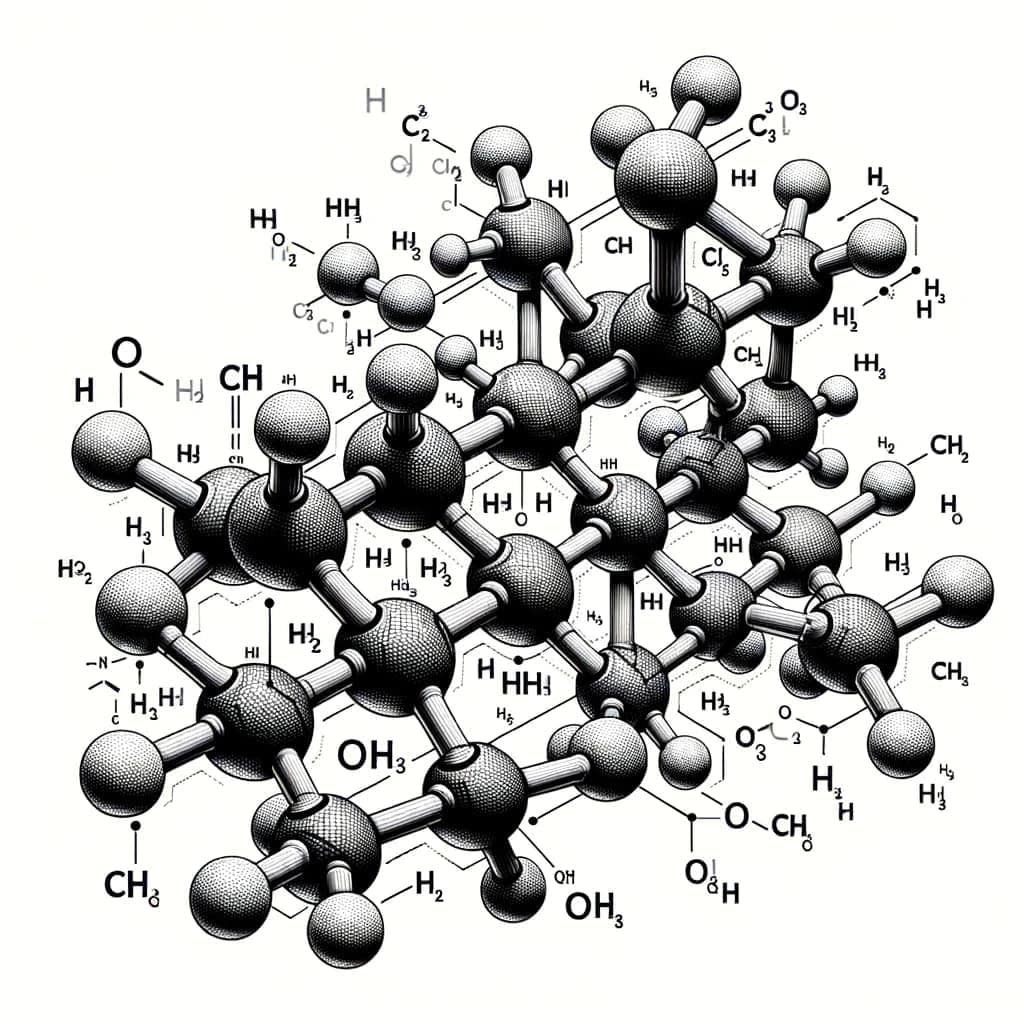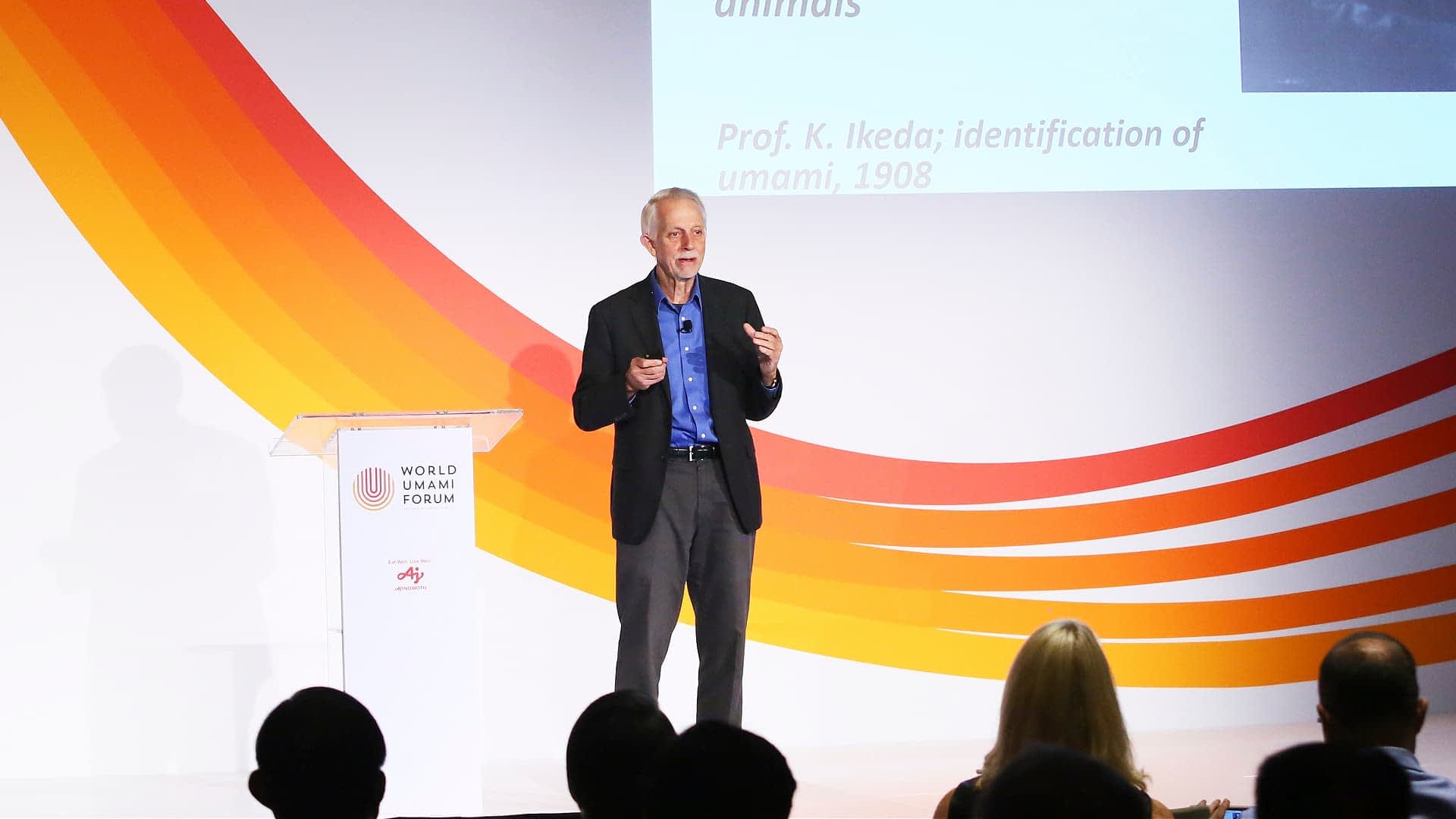Oleocanthal: Behind the Health Benefits of Olive Oil's Famous Phenol
Found solely in extra virgin olive oil, oleocanthal demonstrates potent anti-inflammatory properties and has been linked to beneficial impacts on cancer and dementia.
 9K reads
9K readsSince its discovery in 1993, oleocanthal has become one of the most studied polyphenols in extra virgin olive oil.
Extra virgin olive oil is the only edible oil in which the naturally occurring organic compound is found, which research has associated with beneficial impacts on the development of neurodegenerative diseases, cancer and other chronic inflammatory conditions.
Oleocanthal is a monophenolic secoiridoid, a group of antioxidants in some plant-based foods. The rare polyphenol is homologous to ibuprofen, a nonsteroidal anti-inflammatory drug that relieves pain, fever and inflammation.
See Also:Olive Oil BasicsGary Beauchamp (pronounced Beach-um) made this discovery after he attended a molecular gastronomy conference in Sicily in 1999.
The revelation renewed interest in the molecule originally known as decarbomethoxy-dialdehydic ligstroside aglycone, which was later renamed by Paul Breslin, one of Beauchamp’s colleagues, to make the molecule more memorable.

Two-dimensional chemical diagram of the oleocanthal molecule (OpenAI)
He coined oleocanthal, deriving the name from oleo for olive oil, canth for sting and al since the molecule is a dialdehyde.
Oleocanthal sensory attributes
After tasting a local extra virgin olive oil produced from an attendee’s farm at the 1999 conference, Beauchamp noticed that the burning sensation he felt in the oropharynx, the back of the throat, was the same one elicited by swallowing ibuprofen in liquid form.
Previous research has shown that long-term use of ibuprofen has demonstrated a reduced incidence of cancer and neurodegenerative diseases.
Beauchamp immediately wondered whether this same sensation indicated a natural anti-inflammatory agent in extra virgin olive oil and whether this helped explain the well-known health benefits of the Mediterranean diet.

Gary Beauchamp in 2018 (AP)
In the world of extra virgin olive oil, there are three positive sensory characteristics: fruity, bitter and pungent.
The presence of oleocanthal in extra virgin olive oil contributes to its bitterness. It is the sole source of its pungency, manifested as a burning sensation in the back of the throat.
The burning association caused by oleocanthal is felt in the throat and not the mouth because the sensation is mediated by TRPA1 ion channel receptors located in the throat, nasal cavity and elsewhere in the body, but not the mouth.
Oleocanthal and health
Oleocanthal’s health benefits are primarily associated with the compound’s anti-inflammatory properties, which Beauchamp and a research team found slightly more potent than ibuprofen.
Research has found that the concentration of oleocanthal in extra virgin olive oil is roughly 284 to 711 milligrams per kilogram.
See Also:Olive Oil Health BenefitsTypical Mediterranean populations are estimated to consume 25 to 30 milliliters of extra virgin olive oil daily, meaning the daily oleocanthal consumption would be between 6.5 and 19.6 milligrams. By comparison, 10 milligrams of oleocanthal is considered a low dose of ibuprofen.
Oleocanthal’s anti-inflammatory activity comes from its ability to inhibit an enzyme called cyclooxygenase, which forms substances called prostanoids. The formation of these signaling molecules causes inflammation.
As a result, the consumption of extra virgin olive oil high in oleocanthal has been associated with positive impacts on a range of inflammation-related chronic diseases.
Oleocanthal and dementia
Due to ibuprofen’s well-known association with beneficial effects on markers of neurodegenerative disease, researchers were naturally eager to investigate the role of oleocanthal on neurodegenerative disease, especially dementia.
Numerous studies have found that oleocanthal interferes with the aggregation of Amyloid beta protein in the brain, which is found in people with Alzheimer’s disease, the most common type of dementia.
Mice treated with oleocanthal for four weeks were found to have significantly reduced amounts of Amyloid beta protein in several parts of the brain.
See Also:Dementia Rates Set to Triple by 2050, Latest Research IndicatesResearchers hypothesized that this may be due to oleocanthal’s ability to increase the expression of two proteins (P‑glycoprotein and LRP1) that clear Amyloid beta protein from the blood-brain barrier.
In a separate study, researchers found that oleocanthal also induces antioxidant effects in the brain, which resulted in the decrease of a cytokine known to contribute to neuroinflammation.
The same study also suggested that oleocanthal protects neurons from Amyloid beta protein-induced deterioration and oxidative stress, which is a significant part of the pathophysiological process of dementia.
Furthermore, a 2021 study from researchers at the University of Louisiana-Monroe found that oleocanthal consumption deactivates the complementary peptide C3a receptor 1 (C3AR1).
In patients with Alzheimer’s disease and those at risk of Alzheimer’s disease, this receptor overworks, promoting inflammation and impairing the immune system from clearing away damaged cells that contribute to the development of dementia.
Oleocanthal and cancer treatment
There is a growing body of research, including many in vitro studies, investigating the role of phenolic compounds in slowing the spread of cancer, with oleocanthal thought to play a leading role.
COX2, a cyclooxygenase enzyme, is implicated in the development and spread of several types of cancer both in human and animal studies. Oleocanthal’s ability to reduce the intensity of this cyclooxygenase enzyme has made the phenolic compound a topic of interest among all types of cancer researchers.
Since 2020, the National Cancer Institute in the United States has identified oleocanthal as a potential nutraceutical in the fight against cancer, specifically breast cancer.
A 2021 study from the University of Louisiana-Monroe found that oleocanthal may be effective as part of a targeted therapy for triple-negative breast cancer (TNBC) patients.
See Also:Oleocanthal, a Polyphenol in Olive Oil, Positively Impacts Human Melanoma CellsUsing advanced preclinical transgenic mouse models – human cancer cells transplanted into immunodeficient mice – the researchers found that oleocanthal consumption suppressed tumor growth.
Separate research published in Spain delved further into the mechanisms by which oleocanthal may have achieved these results. The 2023 study found that oleocanthal and oleacein disrupted the process of angiogenesis, the development of blood cells to supply nutrients to tumors, both in vivo and in vitro.
Meanwhile, a 2022 study published by researchers in Greece found that leukemia patients consuming oleocanthal and oleacein experienced a decrease in white blood cell production through a process known as apoptosis, a mechanism of cell death that can kill cancer cells.
Oleocanthal and cardiometabolic disease
While oleocanthal has mainly been associated with beneficial impacts on cancer and neurodegenerative diseases, new research suggests that the polyphenol also improves the health of people suffering from chronic cardiometabolic diseases, including obesity and diabetes.
A 2023 study published by researchers in Spain found that consuming extra virgin olive oil rich in oleocanthal and oleacein increased blood antioxidant defenses and decreased oxidative stress and inflammation parameters.
Oxidative stress is widely believed to precede the development of inflammation, which is related to insulin resistance. The research showed that consuming extra virgin olive oil rich in the two polyphenols may prevent the development of diabetes.
Other health benefits associated with oleocanthal
Due to oleocanthal’s marked similarities with ibuprofen, researchers are investigating the potential of the molecule to mitigate a range of diseases treated by the medication.
As of 2019, a combined 546 million people worldwide are living with either osteoarthritis or rheumatoid arthritis. Both conditions are aggravated by the production of pro-inflammatory cytokines that increase nitric oxide and prostaglandin production and synthesize the enzymes that degrade cartilage in the joints.
See Also:Mediterranean Diet May Help Prevent Rheumatoid Arthritis in SmokersSeveral studies have found that through its inhibition of cyclooxygenase, oleocanthal attenuates the symptoms associated with cytokine inflammation and reduces the production of nitric oxide and prostaglandins. As a result, oleocanthal has been posited as a potentially effective treatment against both types of arthritis.
Other research in Spain found that consuming extra virgin olive oil rich in polyphenols, including oleocanthal, may also help heal damaged skin.
The 2023 study demonstrated that consumption of oleocanthal helps stimulate fibroblast production. Fibroblasts are the cells in the skin responsible for regeneration and repairing damaged skin.
The future of oleocanthal research
While a growing body of research demonstrates oleocanthal’s positive health impacts and the potential use cases, there has been limited progress in developing an oleocanthal-based nutraceutical.
According to Beauchamp, this is largely because no one owns a patent on the molecule. As a result, drugs produced from oleocanthal could be copied by anyone, meaning a pharmaceutical company could not recoup its investment in research and development.
Another limitation cited by Beauchamp is that oleocanthal can only be obtained by degrading extra virgin olive oil. The quantity of oil required to yield the necessary amounts would be costly.
For the foreseeable future, the best way to obtain the benefits of oleocanthal remains to consume high-quality extra virgin olive oil.
Know the Basics
Things to know about olive oil, from the Olive Oil Times Education Lab.
Extra virgin olive oil (EVOO) is simply juice extracted from olives without any industrial processing or additives. It must be bitter, fruity and pungent — and free of defects.
There are hundreds of olive varieties used to make oils with unique sensory profiles, just as many varieties of grapes are used in wines. An EVOO can be made with just one variety (monovarietal) or several (blend).
Extra virgin olive oil contains healthy phenolic compounds. Substituting a mere two tablespoons of EVOO per day instead of less healthy fats has been shown to improve health.
Producing high-quality extra virgin olive oil is an exceptionally difficult and costly task. Harvesting olives earlier retains more nutrients and extends shelf life, but the yield is far less than that of fully ripe olives that have lost much of their healthy compounds.








